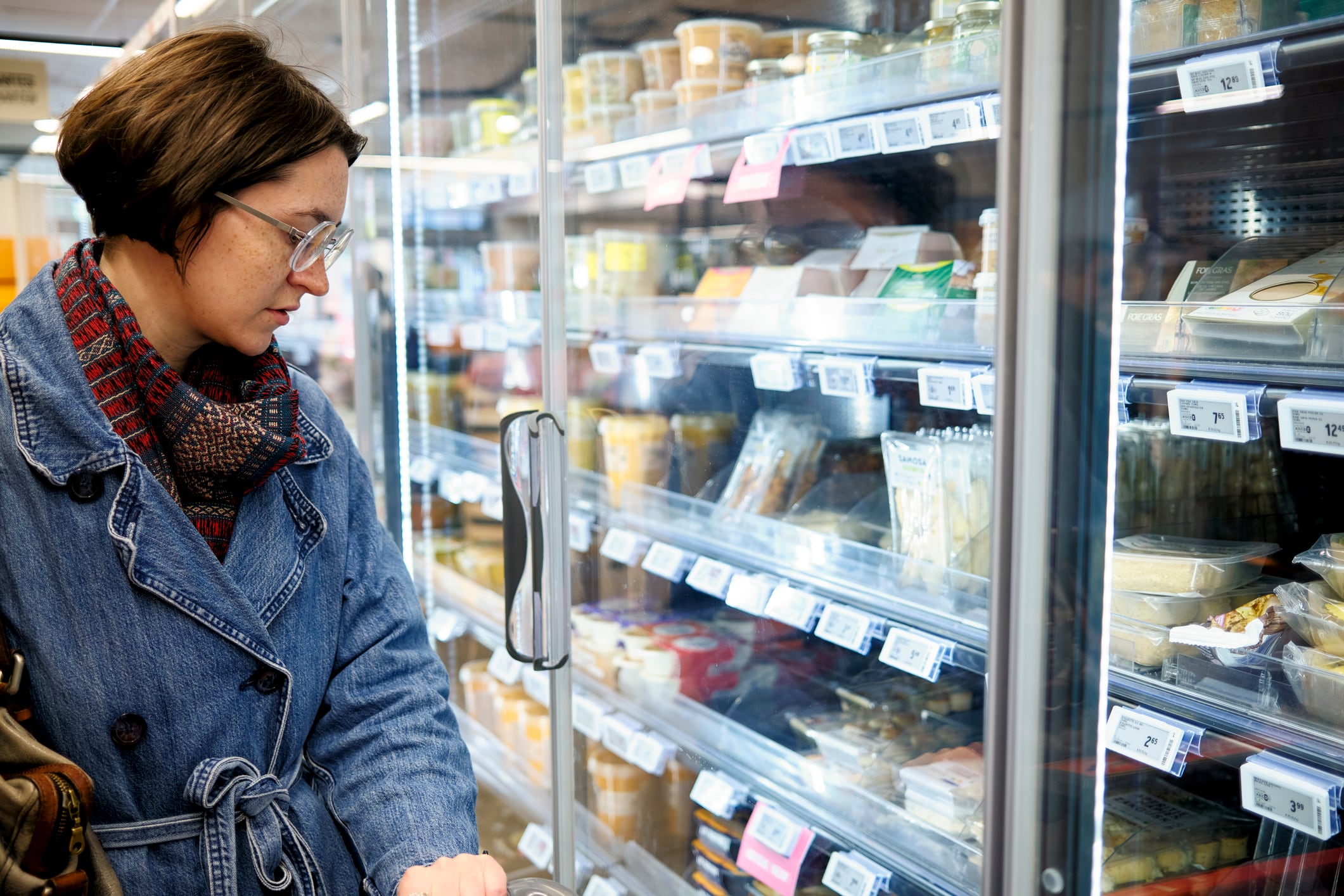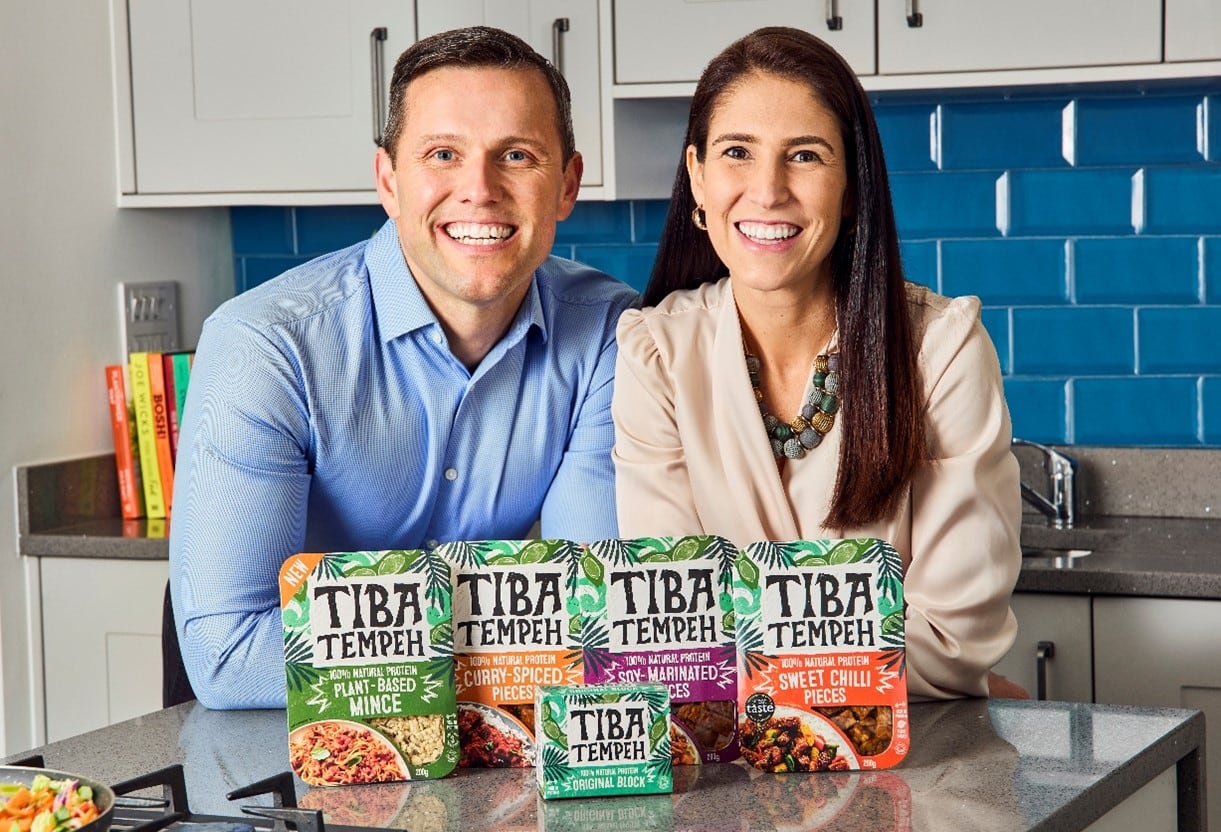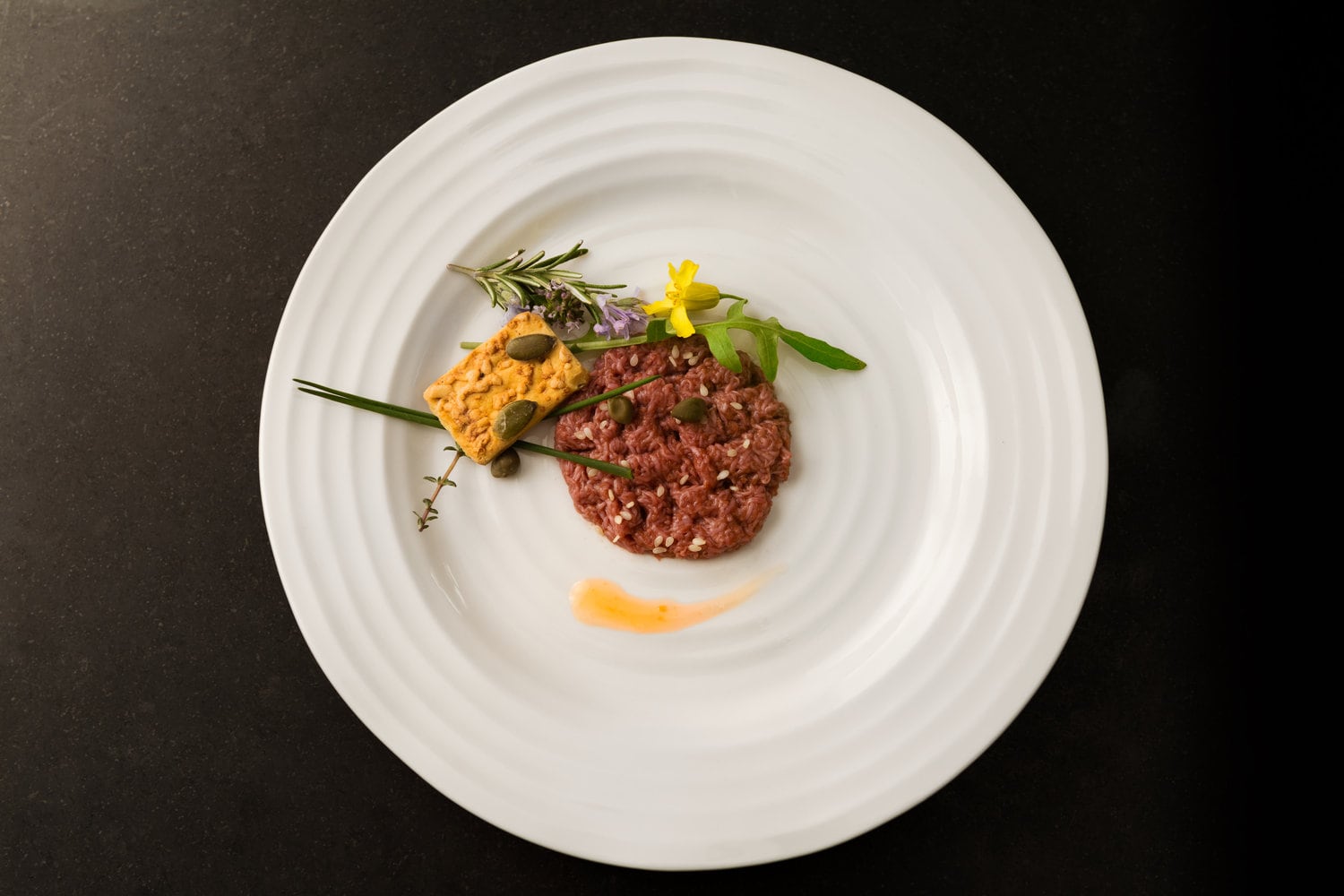Founded by Angela Chou and Nivi Jasa in 2017, cashew-based cheese brand ‘I Am Nut Ok’ started life the same way many others in the alternative category do, with its creators unable to find what they were looking for on supermarket shelves.
Chou and Jasa both have design backgrounds and told Food Manufacture they had been “frustrated with the lack of bold, high-quality plant-based cheese”.
“[We] wanted something that not only tasted better, but also had a strong creative identity,” they added.
“As designers, we knew that branding played a crucial role in attracting new customers, but ultimately, the product had to be delicious and made using premium ingredients to succeed.”
What began as a weekend experiment at farmers’ markets quickly gained traction, landing the brand listings with prominent retailers like Fortnum & Mason and Planet Organic. The launch of its online shop — fuelled by Covid — helped them to scale up further, supplying both local and national pizzerias.
In 2024, the business took another big step forward, launching into Ocado and Whole Foods, making our products even more accessible to customers across the UK.
Unlike many food startups that rely heavily on VC funding, I Am Nut Ok has been completely bootstrapped and, according to the founders ‘profitable from day one’.
“That’s a rare feat in this space, where many brands struggle to reach break-even before running out of capital. Our commitment to quality, creativity, and authenticity has driven our growth, proving that a strong brand and standout flavours can make a real impact in the plant-based sector,” they noted.
Cheese made from cashews
The ‘cheeses’ are made from Cashews, which the founders explained offer a natural creaminess that help mimic a rich, dairy-like mouthfeel. This is combined with I Am Nut Ok’s fermentation process which uses dairy-free live cultures to create tang and umami.
“Depending on the variety, our cheeses can age anywhere from 3 to 14 days, allowing for greater complexity in both flavour and texture. This fermentation-driven approach sets our range apart, delivering a character that’s hard to achieve with other plant-based ingredients,” the duo explained.
A major investment
Last year the company made a big investment, which saw it increase capacity, streamline production and speed up key processes that had previously been labour-intensive.
“Over the years, we’ve been deeply focused on innovation and efficiency, constantly refining our workflow through R&D and hands-on experience scaling the business. This investment helped us take those improvements to the next level—some of our cheeses went from 50 units per hour to 800.”
Another major breakthrough was in packaging, with the business moving from a “slow and tedious” hand-packaging process to an automated system that increased efficiency fivefold, significantly reducing labour time while improving consistency.
“We’ve also automated a lot of manual processes, making production smoother and more consistent. People often say, ‘work smarter, not harder’, but we believe in doing both – thinking strategically while putting in the effort to build something truly great.”
The founders say the investment alongside its recent Ocado listings are two main drivers for the hike it’s seen in Y-O-Y sales – which have increased by 24%.
“We’ve seen significant improvements across the business, especially in order fulfilment and innovation. With increased capacity, we can now process orders much faster, eliminating the stock shortages that previously limited our ability to meet demand.
“Having more time and resources has also allowed us to experiment with new flavours and formats. Most recently, we launched our Limited Edition Monthly Bundles, where we drop a brand-new, exclusive cheese each month, available only in our online shop. This not only keeps our core audience engaged and excited but also opens up opportunities for collaborations and gets buyers intrigued about what’s coming next.”
Demand for natural alternative cheeses
The cheese category is dominated by dairy giant such as Saputo and Bel UK, with the plant-based retail cheese market valued at £174m – a fifth of the dairy alternative category.
And while there has been consolidation in the alternative space and question marks raised since ultra processed foods were thrown into the spotlight, the duo says there has been a real sense of growing demand for ‘natural’ cheese alternatives.
“A lot of businesses entered the plant-based space simply to chase the vegan boom, but building a strong, sustainable brand requires much more than that,” the founders commented.
“From day one, we tested the market directly, starting at farmers' markets, where we gathered continual feedback and refined our products based on real customer insights.
“Beyond that, our branding and hands-on approach have been key. We’ve been deeply involved in every step of the business, which has helped us to build an authentic connection with our customers. That authenticity has translated into a loyal following and strong brand identity, setting us apart in an increasingly competitive space.
“Being completely bootstrapped also shaped our journey. We had to scale while staying profitable because there was never another option. In a way, our customers have been our real investors, validating our ideas and driving us to keep innovating and creating fun and tasty cheeses.”
The founders expect to see a significant rise in sales this year but added that maintaining its artisan quality as it scales up is vital.
“The plant-based category needs to evolve in 2025. People want transparency regardless of personal beliefs on ethics or environment. We are building a new category of alternatives grounded in wholefoods that consumers can relate to.”
Going forward the plan is to establish I Am Nut Ok as one of the UK’s leader in vegan cheese.
“There’s plenty of room for growth, and if we want to help drive the plant-based industry forward, we need to get people genuinely excited about better alternatives. We’re working on new flavours, but we’re also focused on improving our packaging, a brand refresh, and expanding into major retailers and foodservice. We believe that having a strong presence in both retail and foodservice is key to increasing market share and building brand awareness.
“Our mission is simple: to get more people eating better cheese. We’re here to lead that revolution and make plant-based cheese something that excites everyone – not just vegans.”





